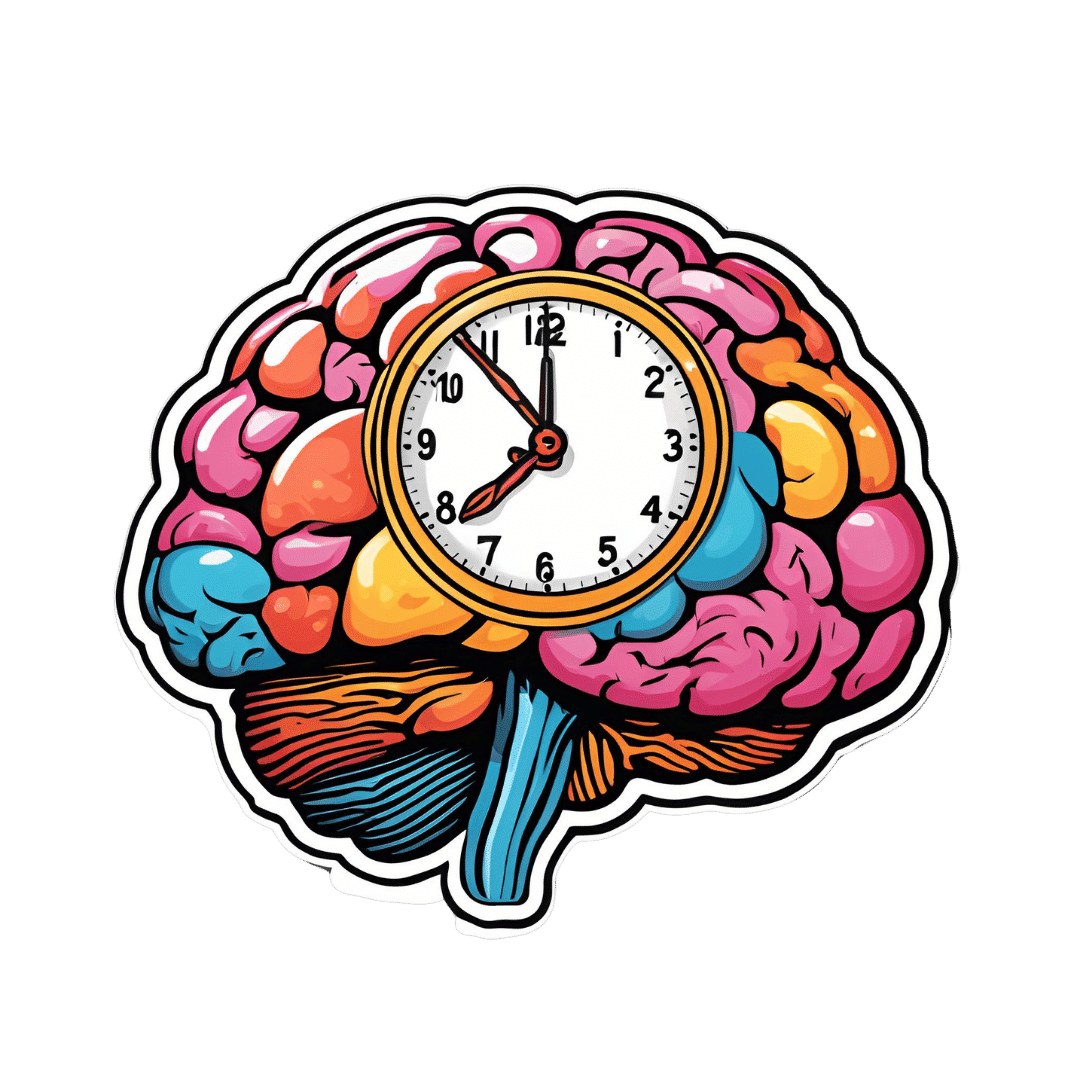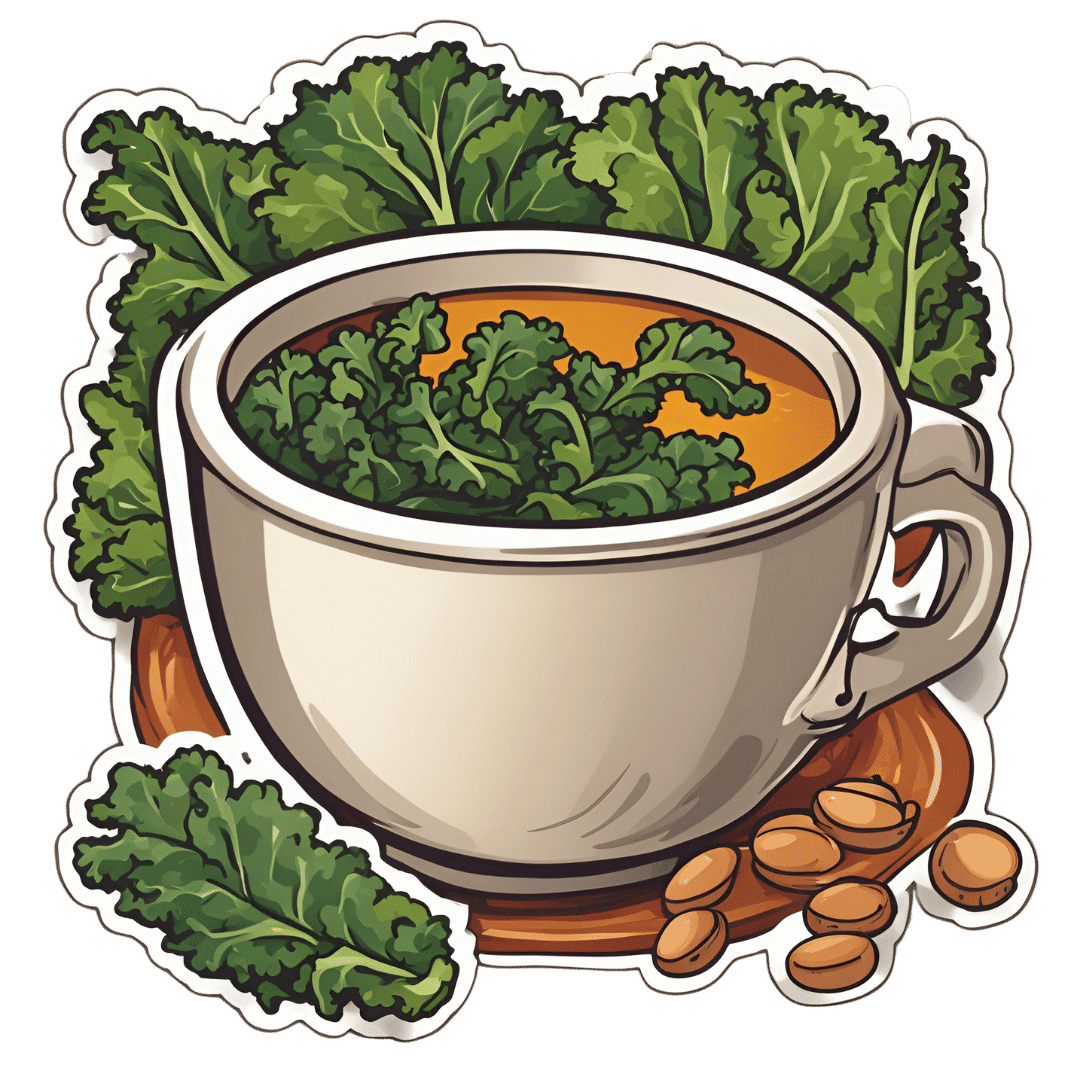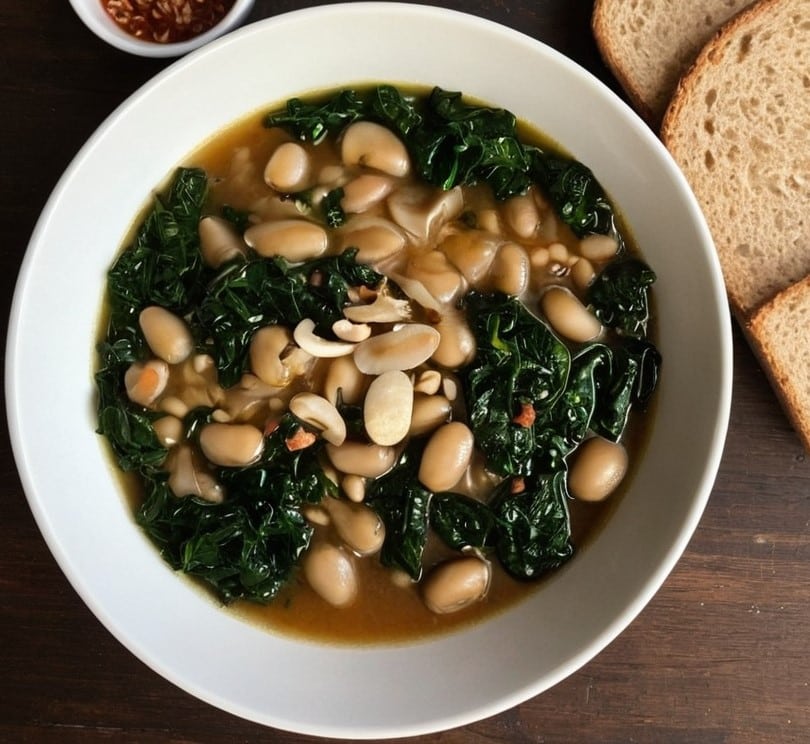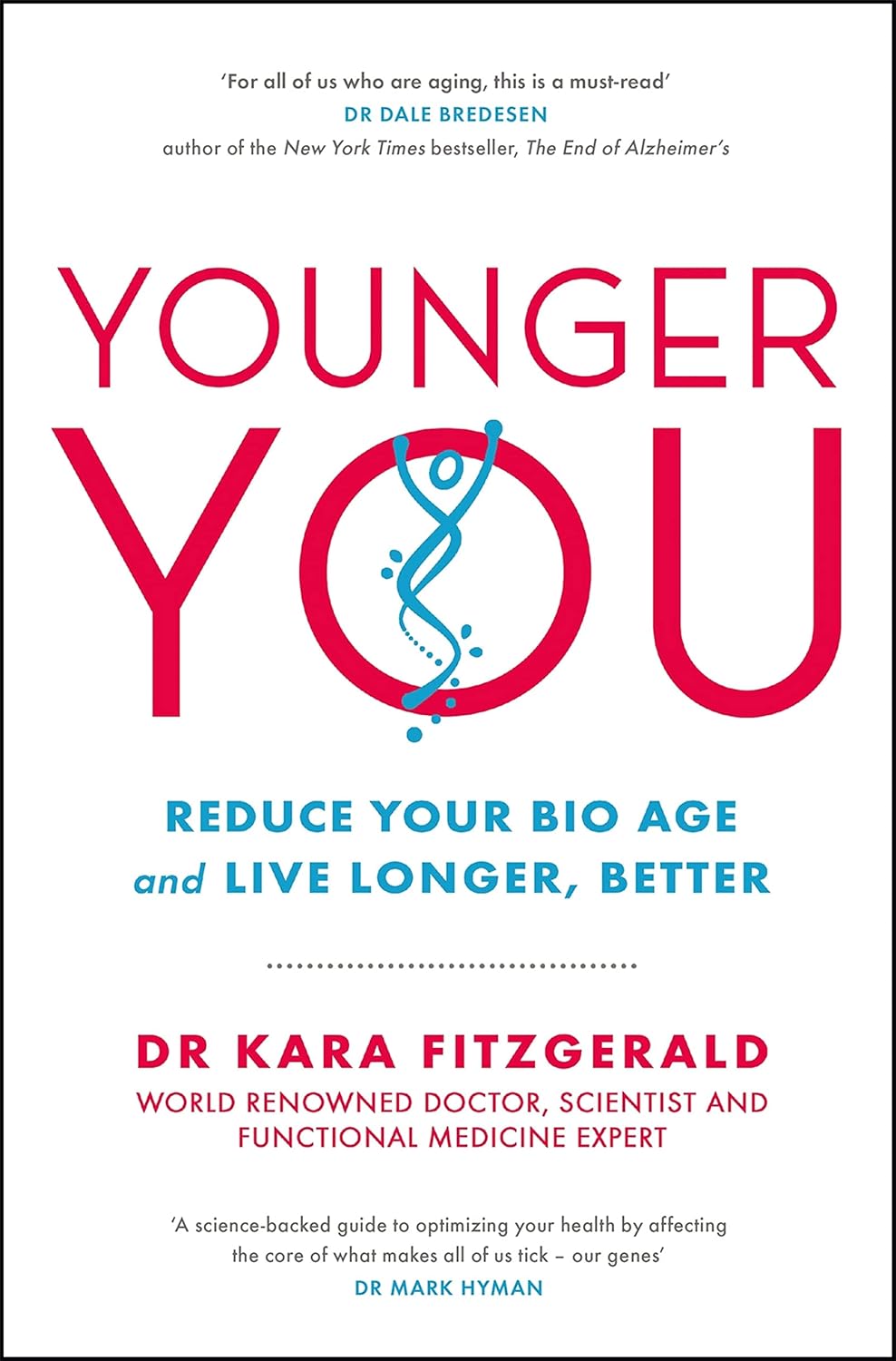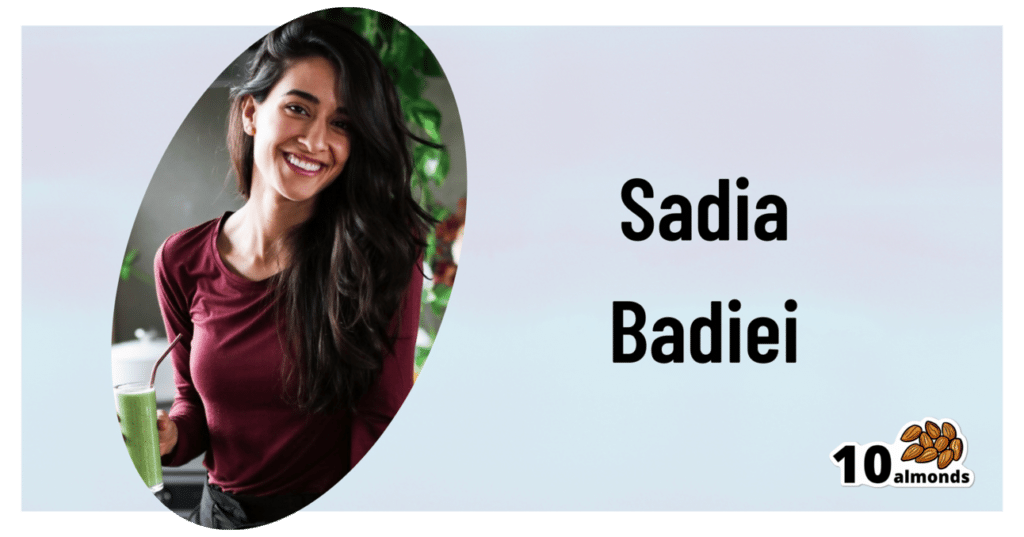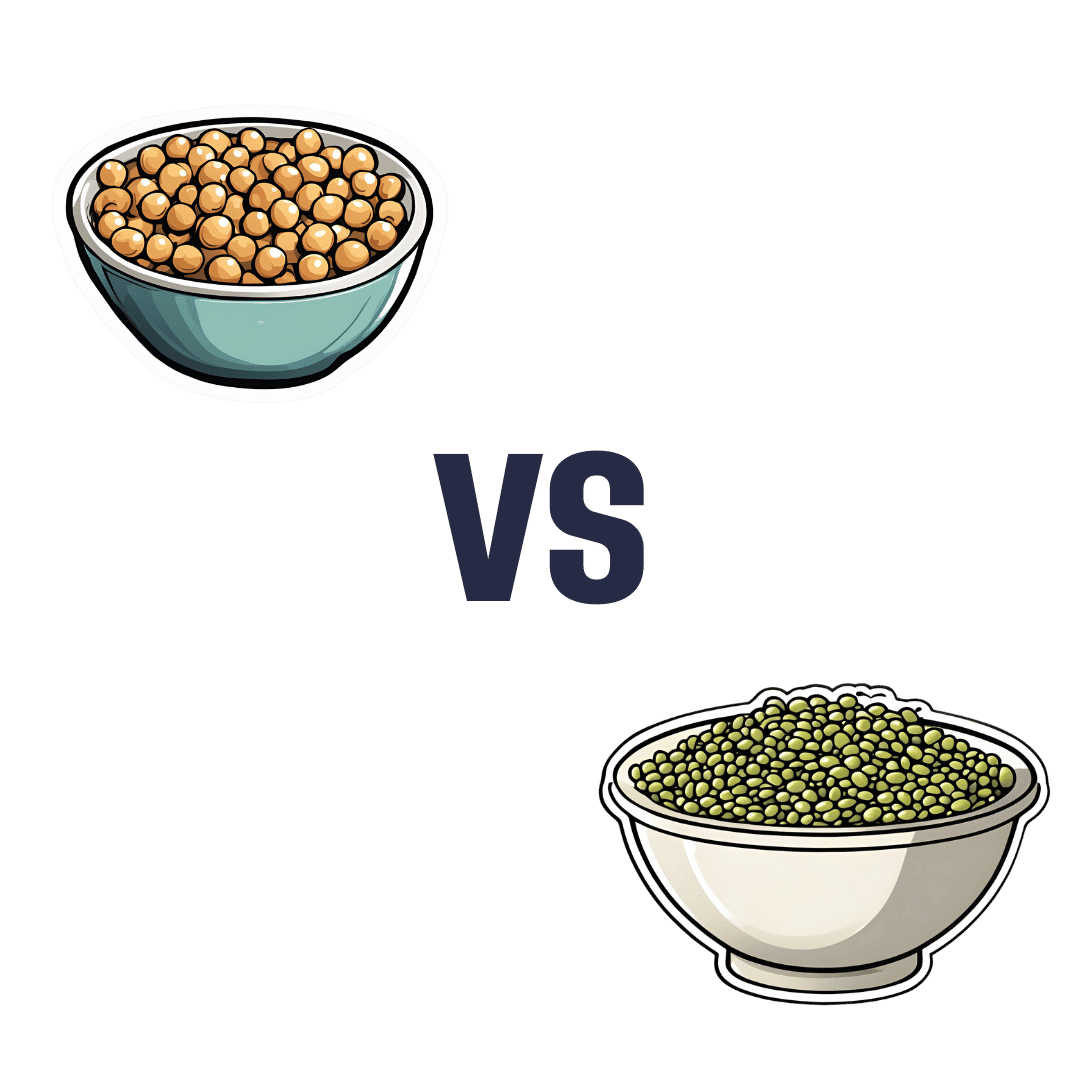
How often should you really weigh yourself?
10almonds is reader-supported. We may, at no cost to you, receive a portion of sales if you purchase a product through a link in this article.
Few topics are more debated in health than the value of the humble bathroom scale. Some experts advocate daily self-weigh-ins to promote accountability for weight management, particularly when we’re following a diet and exercise program to lose weight.
Others suggest ditching self-weigh-ins altogether, arguing they can trigger negative psychological responses and unhealthy behaviours when we don’t like, or understand, the number we see on the scale.
Many, like me, recommend using scales to weigh yourself weekly, even when we’re not trying to lose weight. Here’s why.

1. Weighing weekly helps you manage your weight
Research confirms regular self-weighing is an effective weight loss and management strategy, primarily because it helps increase awareness of our current weight and any changes.
A systematic review of 12 studies found participants who weighed themselves weekly or daily over several months lost 1–3 BMI (body mass index) units more and regained less weight than participants who didn’t weight themselves frequently. The weight-loss benefit was evident with weekly weighing; there was no added benefit with daily weighing.

Self-weigh-ins are an essential tool for weight management as we age. Adults tend to gain weight progressively through middle age. While the average weight gain is typically between 0.5–1kg per year, this modest accumulation of weight can lead to obesity over time. Weekly weighing and keeping track of the results helps avoid unnecessary weight gain.
Tracking our weight can also help identify medical issues early. Dramatic changes in weight can be an early sign of some conditions, including problems with our thyroid, digestion and diabetes.
2. Weekly weighing accounts for normal fluctuations
Our body weight can fluctuate within a single day and across the days of the week. Studies show body weight fluctuates by 0.35% within the week and it’s typically higher after the weekend.
Daily and day-to-day body weight fluctuations have several causes, many linked to our body’s water content. The more common causes include:
The type of food we’ve consumed
When we’ve eaten a dinner higher in carbohydrates, we’ll weigh more the next day. This change is a result of our bodies temporarily carrying more water. We retain 3–4 grams of water per gram of carbohydrate consumed to store the energy we take from carbs.
Our water content also increases when we consume foods higher in salt. Our bodies try to maintain a balance of sodium and water. When the concentration of salt in our bloodstream increases, a mechanism is triggered to restore balance by retaining water to dilute the excess salt.
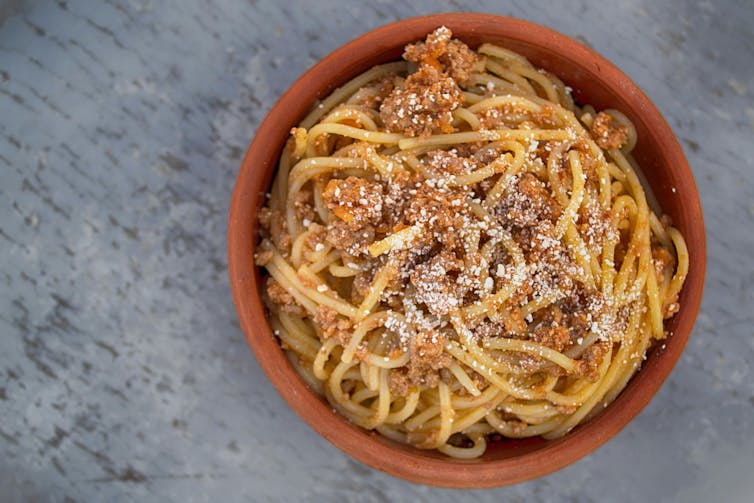
Our food intake
Whether it’s 30 grams of nuts or 65 grams of lean meat, everything we eat and drink has weight, which increases our body weight temporarily while we digest and metabolise what we’ve consumed.
Our weight also tends to be lower first thing in the morning after our food intake has been restricted overnight and higher in the evening after our daily intake of food and drinks.
Exercise
If we weigh ourselves at the gym after a workout, there’s a good chance we’ll weigh less due to sweat-induced fluid loss. The amount of water lost varies depending on things like our workout intensity and duration, the temperature and humidity, along with our sweat rate and hydration level. On average, we lose 1 litre of sweat during an hour of moderate-intensity exercise.
Hormonal changes
Fluctuations in hormones within your menstrual cycle can also affect fluid balance. Women may experience fluid retention and temporarily gain 0.5–2kg of weight at this time. Specifically, the luteal phase, which represents the second half of a woman’s cycle, results in a shift of fluid from your blood plasma to your cells, and bloating.

Bowel movements
Going to the bathroom can lead to small but immediate weight loss as waste is eliminated from the body. While the amount lost will vary, we generally eliminate around 100 grams of weight through our daily bowel movements.
All of these fluctuations are normal, and they’re not indicative of significant changes in our body fat or muscle mass. However, seeing these fluctuations can lead to unnecessary stress and a fixation with our weight.
3. Weekly weighing avoids scale obsession and weight-loss sabotage
Weighing too frequently can create an obsession with the number on the scales and do more harm than good.
Often, our reaction when we see this number not moving in the direction we want or expect is to further restrict our food intake or embark on fad dieting. Along with not being enjoyable or sustainable, fad diets also ultimately increase our weight gain rather than reversing it.
This was confirmed in a long-term study comparing intentional weight loss among more than 4,000 twins. The researchers found the likelihood of becoming overweight by the age of 25 was significantly greater for a twin who dieted to lose 5kg or more. This suggests frequent dieting makes us more susceptible to weight gain and prone to future weight gain.
So what should you do?
Weighing ourselves weekly gives a more accurate measure of our weight trends over time.
Aim to weigh yourself on the same day, at the same time and in the same environment each week – for example, first thing every Friday morning when you’re getting ready to take a shower, after you’ve gone to the bathroom, but before you’ve drunk or eaten anything.
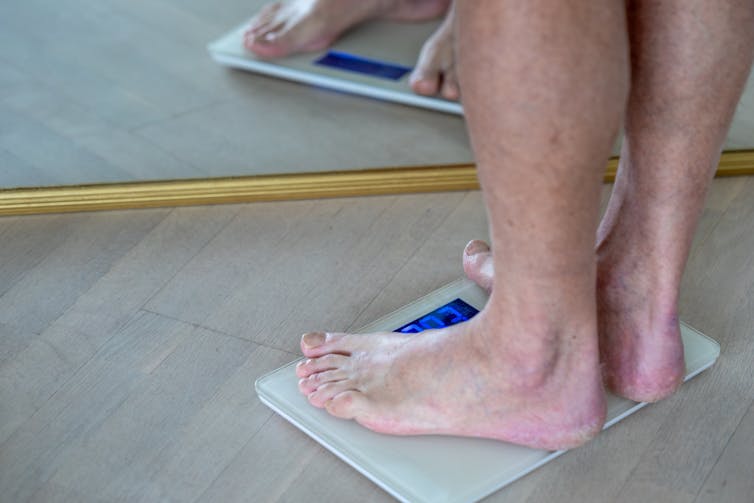
Use the best quality scales you can afford. Change the batteries regularly and check their accuracy by using a “known” weight – for example, a 10kg weight plate. Place the “known” weight on the scale and check the measurement aligns with the “known” weight.
Remember, the number on the scale is just one part of health and weight management. Focusing solely on it can overshadow other indicators, such as how your clothes fit. It’s also essential to pay equal attention to how we’re feeling, physically and emotionally.
Stop weighing yourself – at any time interval – if it’s triggering anxiety or stress, and get in touch with a health-care professional to discuss this.
At the Boden Group, Charles Perkins Centre, we are studying the science of obesity and running clinical trials for weight loss. You can register here to express your interest.
Nick Fuller, Charles Perkins Centre Research Program Leader, University of Sydney
This article is republished from The Conversation under a Creative Commons license. Read the original article.
Don’t Forget…
Did you arrive here from our newsletter? Don’t forget to return to the email to continue learning!
Recommended
Learn to Age Gracefully
Join the 98k+ American women taking control of their health & aging with our 100% free (and fun!) daily emails:
-
4 Practices To Build Self-Worth That Lasts
10almonds is reader-supported. We may, at no cost to you, receive a portion of sales if you purchase a product through a link in this article.
Self-worth is internal, based on who you are, not what you do or external validation. It differs from self-esteem, which is more performance-based. High self-worth doesn’t necessarily mean arrogance, but can lead to more confidence and success. Most importantly, it’ll help you to thrive in what’s actually most important to you, rather than being swept along by what other people want.
A stable foundation
A strong sense of self-worth shapes how you handle boundaries, what you believe you deserve, and what you pursue in life. This matters, because life is unpredictable, so having a resilient internal foundation (like a secure “house”) helps you to weather challenges.
- Self-acceptance and compassion:
- Accept both your positive and negative traits with compassion.
- Don’t judge yourself harshly; allow yourself to accept imperfections without guilt or shame.
- Self-trust:
- Trust yourself to make choices that benefit you and create habits that support long-term well-being—especially if those benefits are cumulative!
- Balance self-care with flexibility to enjoy life without being overly rigid.
- Get uncomfortable:
- Growth happens outside your comfort zone. Step into new, challenging experiences to build self-trust.
- However! Small uncomfortable actions lead to greater confidence and a stronger sense of self. Large uncomfortable actions often doing lead anywhere good.
- Separation of tasks:
- Oftentimes we end up overly preoccupying ourselves with things that are not actually our responsibility. Focus instead on tasks that genuinely belong to you, and let go of trying to control others’ perceptions or tasks.
- Seek internal validation, not external praise. Avoid people-pleasing behavior.
Finally, three things to keep in mind:
- Boundaries: respecting your own boundaries strengthens self-worth, avoiding burnout from people-pleasing.
- Validation: self-worth is independent of how others perceive you; focus on your integrity and personal growth.
- Accountability: take responsibility for your actions but recognize that others’ reactions are beyond your control.
For more on all of these things, enjoy:
Click Here If The Embedded Video Doesn’t Load Automatically!
Want to learn more?
You might also like to read:
Practise Self-Compassion In Your Relationship (But Watch Out!)
Take care!
Share This Post
- Self-acceptance and compassion:
-
The Other Circadian Rhythms
10almonds is reader-supported. We may, at no cost to you, receive a portion of sales if you purchase a product through a link in this article.
We’ve talked before about how circadian rhythm pertains not just to when it is ideal for us to sleep or be awake, but also at what times it is best to eat, exercise, and so forth:
The Circadian Rhythm: Far More Than Most People Know
Most people just know about the light consideration, per for example:
- How light can shift your mood and mental health, and
- How light tells you when to sleep, focus and poo
When your body parts clock on and off at the wrong time…
Now, new research has brought attention to how these things and more are governed by different physiological clocks within our bodies—and what this means for our health. In other words, if you are doing the various things at different times than you “should”, you will be training the different parts of your body (each with their independent clocks) to be on a different schedule, and so the different parts of your body will out of temporal sync with each other.
To put this in jet-lag terms: if your brain is in New York, while your heart is in Istanbul (not Constantinople) and your gut is in Tokyo, then this arrangement is not good for the health.
As for how it is not good for your health (i.e. the consequences) there’s still research to be done on some of the longer-term implications, but in the short term, one of the biggest effects is on our mood—most notably, increasing depression scores significantly.
And even more importantly, this is in the real world. That is to say, until quite recently, most data we had from studies on the circadian rhythm was from sleep clinic laboratories, which is great for RCTs but will always have as a limitation that someone sleeping in a lab is going to have some differences than someone sleeping in their own bed at home.
As the researchers said:
❝A critical step to addressing this is the noninvasive collection of physiological time-series data outside laboratory settings in large populations. Digital tools offer promise in this endeavor. Here, using wearable data, we first quantify the degrees of circadian disruption, both between different internal rhythms and between each internal rhythm and the sleep-wake cycle. Our analysis, based on over 50,000 days of data from over 800 first-year training physicians, reveals bidirectional links between digital markers of circadian disruption and mood both before and after they began shift work, while accounting for confounders such as demographic and geographic variables. We further validate this by finding clinically relevant changes in the 9-item Patient Health Questionnaire score.❞
Read in full: The real-world association between digital markers of circadian disruption and mental health risks
That questionnaire by the way sounds like an arbitrary thing they just made up, but the PHQ-9 (as it is known to its friends) is in fact the current intentional gold standard for measuring depression; we share it at the top of our article about depression, here:
The Mental Health First-Aid That You’ll Hopefully Never Need ← the test takes 2 minutes and you get immediate results
Want to know more?
For more about getting one’s entire self back into temporal sync (hey, wasn’t that the plot of a Star Trek episode?), sleep specialist Dr. Michael Breus wrote this excellent book that we reviewed a little while back:
Enjoy!
Share This Post
-
Brothy Beans & Greens
10almonds is reader-supported. We may, at no cost to you, receive a portion of sales if you purchase a product through a link in this article.
“Eat beans and greens”, we say, “but how”, you ask. Here’s how! Tasty, filling, and fulfilling, this dish is full of protein, fiber, vitamins, minerals, and assorted powerful phytochemicals.
You will need
- 2½ cups low-sodium vegetable stock
- 2 cans cannellini beans, drained and rinsed
- 1 cup kale, stems removed and roughly chopped
- 4 dried shiitake mushrooms
- 2 shallots, sliced
- ½ bulb garlic, crushed
- 1 tbsp white miso paste
- 1 tbsp nutritional yeast
- 1 tsp rosemary leaves
- 1 tsp thyme leaves
- 1 tsp black pepper, coarse ground
- ½ tsp red chili flakes
- Juice of ½ lemon
- Extra virgin olive oil
- Optional: your favorite crusty bread, perhaps using our Delicious Quinoa Avocado Bread recipe
Method
(we suggest you read everything at least once before doing anything)
1) Heat some oil in a skillet and fry the shallots for 2–3 minutes.
2) Add the nutritional yeast, garlic, herbs, and spices, and stir for another 1 minute.
3) Add the beans, vegetable stock, and mushrooms. Simmer for 10 minutes.
4) Add the miso paste, stirring well to dissolve and distribute evenly.
5) Add the kale until it begins to wilt, and remove the pot from the heat.
6) Add the lemon juice and stir.
7) Serve; we recommend enjoying it with crusty wholegrain bread.
Enjoy!
Want to learn more?
For those interested in some of the science of what we have going on today:
- Dr. Greger’s Daily Dozen ← beans and greens up top!
- The Magic of Mushrooms: “The Longevity Vitamin” (That’s Not A Vitamin)
- Our Top 5 Spices: How Much Is Enough For Benefits?
Take care!
Share This Post
Related Posts
-
Younger You – by Kara Fitzgerald
10almonds is reader-supported. We may, at no cost to you, receive a portion of sales if you purchase a product through a link in this article.
First, a note about the author: she is a naturopathic doctor, a qualification not recognized in most places. Nevertheless, she clearly knows a lot of stuff, and indeed has been the lead research scientist on a couple of studies, one of which was testing the protocol that would later go into this book.
Arguably, there’s a conflict of interest there, but it’s been peer reviewed and the science seems perfectly respectable. After an 8-week interventional trial, subjects enjoyed a reversal of DNA methylation (one of various possible markers of biological aging) comparable to being 3 years younger.
Where the value of this book lies is in optimizing one’s diet in positive fashion. In other words, what to include rather than what to exclude, but the “include” list is quite extensive so you’re probably not going to be reaching for a donut by the time you’ve eaten all that. In particular, she’s optimized the shopping list for ingredients that contain her DNA methylation superstars most abundantly; those nutrients being: betaine choline, curcumin, epigallocatechin gallate, quercetin, rosmarinic acid, and vitamins B9 and B12.
To make this possible, she sets out not just shopping list but also meal plans, and challenges the reader to do an 8-week intervention of our own.
Downside: it is quite exacting if you want to follow it 100%.
Bottom line: this is a very informative, science-based book. It can make you biologically younger at least by DNA methylation standards, if the rather specific diet isn’t too onerous for you.
Click here to check out Younger You, and enjoy a younger you!
Don’t Forget…
Did you arrive here from our newsletter? Don’t forget to return to the email to continue learning!
Learn to Age Gracefully
Join the 98k+ American women taking control of their health & aging with our 100% free (and fun!) daily emails:
-
Why You’re Tired & How To Fix It
10almonds is reader-supported. We may, at no cost to you, receive a portion of sales if you purchase a product through a link in this article.
This is Sadia Badiei. A dietician by academic and professional background, she’s nowadays hung up her lab coat for a chef’s jacket, and is best known for her “Pick Up Limes” brand. Today, we’ll be taking her advice on managing energy levels with what’s on our plates!
Quick note: our usual medical/legal disclaimer applies, and this article cannot diagnose you from afar, and thus neither can it make any certain prescription; this is for educational purposes, and aimed at being applicable to most of our readers.
There are many possible things that can cause chronic fatigue, and not all of them can be fixed by diet. Your doctor will have access to tests and such that we, being a humble health science publication, do not.
You may recognize her; we’ve featured her videos occasionally, mostly recently:
Pick Up A Zest For Life: 10 Lessons For A Healthy Mind & Body
But, what does she want us to know about living life with more energy?
It starts with balance
Badiei makes the case that we should strive for a nutritionally-balanced diet; that may not come as much of a revelation, but what does that look like for a vegan (Badiei advocates for plant-based eating)?
She recommends that our diet consist of:
- About 50% fruits and vegetables
- About 25% grains and starches
- About 25% proteins
- Modest amounts of fats
- A little of well-chosen dairy substitutions
- Finally, a few judicious supplements to top it off
That does add up to more than 100%, but 1) we did say “About n%” and 2) this is not a bad thing to note, actually, since Badiei advocates (as we do) for focussing more on what we add into our diet, rather than what we take out.
Breaking it down a little further, she recommends making sure to get “the foundational seven”, which is a little like “Dr. Greger’s Daily Dozen”, but in this case it’s counted on a per-food-type basis.
Thus, she recommends:
- Dark green leafy vegetables
- Assorted other non-starchy vegetables (your choice what kind)
- Fruit, of any kinds (unlike Dr. Greger separating berries)
- Grains and starches (so for example, potatoes are lumped in with rice here, botanically very different, but often fulfil a similar culinary role)
- Nuts and seeds
- Legumes
- Fortified dairy alternatives
For full details including how much of each, and “what counts”, etc, see:
Pick Up Limes | The Nourish Method
Time your carbs
Slow-release carbohydrates, those with the most fiber, are best most of the time, giving us more sustained fuel, keeping us energized for longer after meals—even if we would rather sleep:
She cites: Fiber and Saturated Fat Are Associated with Sleep Arousals and Slow Wave Sleep
Quick-release carbohydrates, those with what’s generally considered a less favorable carb:fiber ratio, are best if we’re going to eat nearer to bedtime. We know, eating before bed is often considered a bit of a no-no, but Badiei bids us indulge if we so desire, as the quicker-absorbed carbohydrates support tryptophan reaching our brain more efficiently, and thus promote sleep onset.
See also: Should You Go Light Or Heavy On Carbs?
About that fat
We mentioned (or rather, Badiei’s citation mentioned) saturated fat. It is indeed linked with difficulty falling asleep, and/but omega-3 fatty acids, on the other hand, promote better sleep.
She cites: The relationship between sleep duration, sleep quality and dietary intake in adults
While you’re enjoying those nuts and seeds (for the omega-3 fatty acids), you might also note that several also star in Badiei’s list of plant-based foods that are rich in tryptophan, such as soy, cashews, pumpkin seeds, sunflower seeds, beans, green vegetables, and mushrooms.
Micronutrients
Badiei’s focus here is on B-vitamins, iron, magnesium, selenium, and zinc. We imagine most of our readers here are taking steps to ensure to get a full daily coverage of vitamins and minerals anyway, but you might want to read what she has to say about iron on a plant-based diet, because the numbers may be different than you think.
The reason for this is that while animal products contain mostly heme iron, which is easier to absorb but associated with a risk increase in some diseases, plant-based foods usually* contain only non-heme iron, which is healthier but not as bioavailable, so if eating only plants, we need more of it:
Pick Up Limes | Iron on a Plant-Based Diet
*If you eat a carnivorous plant, guess what, it’ll have heme iron in it, tangling that food web.
“What if I know I have chronic fatigue for non-dietary reasons?”
Well, that sucks, and we’re not going to pretend the above will magically fix it. However, there are still things that can at least relatively improve your experience:
Eat To Beat Chronic Fatigue! Yes, Even When Fatigued Chronically
(it’s a good guide to being able to consistently eat healthily when your energy levels are consistently at minimal, meaning that a lot of common advice becomes unusable)
Take care!
Don’t Forget…
Did you arrive here from our newsletter? Don’t forget to return to the email to continue learning!
Learn to Age Gracefully
Join the 98k+ American women taking control of their health & aging with our 100% free (and fun!) daily emails:
-
Chickpeas vs Mung Beans – Which is Healthier?
10almonds is reader-supported. We may, at no cost to you, receive a portion of sales if you purchase a product through a link in this article.
Our Verdict
When comparing chickpeas to mung beans, we picked the chickpeas.
Why?
Both are great! But there’s a clear winner here:
In terms of macros, chickpeas have more protein, carbs, and fiber, as well as the lower glycemic index. The difference is very small, but it’s a nominal win for chickpeas.
When it comes to vitamins, chickpeas have more of vitamins A, B2, B6, B9, C, E, K, and choline, while mung beans have more of vitamins B1, B3, and B5. Again the differences aren’t huge, but by strength of numbers they’re in chickpeas’ favor, so it’s another win for chickpeas here.
In the category of minerals, chickpeas have more calcium, copper, iron, magnesium, manganese, phosphorus, potassium, selenium, and zinc, while mung beans are not higher in any mineral. An easy win for chickpeas on this one.
Adding up the sections makes for a clear overall win for chickpeas, but by all means enjoy either or both; diversity is good!
Want to learn more?
You might like to read:
Plant vs Animal Protein: Head to Head
Enjoy!
Don’t Forget…
Did you arrive here from our newsletter? Don’t forget to return to the email to continue learning!
Learn to Age Gracefully
Join the 98k+ American women taking control of their health & aging with our 100% free (and fun!) daily emails:



